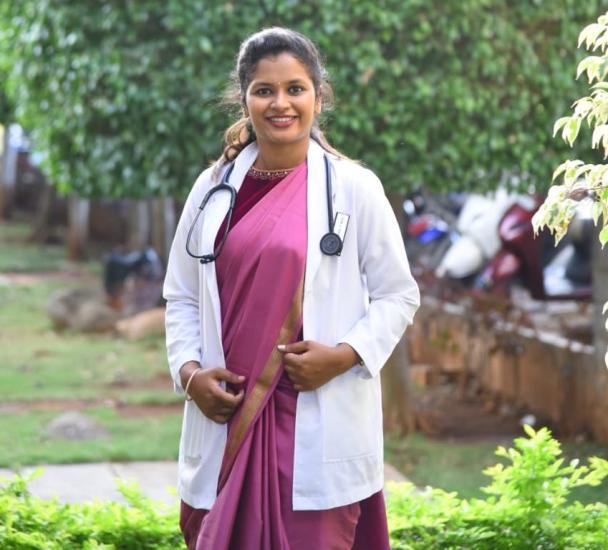By Arpitha Venkatareddy
I was eagerly waiting to attend the ACP conference as it was my first time. When I got an e-mail notification about a story slam at the conference, I got more excited. The topic was “Lost and Found,” a title I could give to my medical career. I was a math student all of my life. Physics fascinated me: I could forget the world with physics before me. I was good at biology too but I never imagined a career in it. I wanted to be an engineer and I was working for it. Back then, in my country, there was a common entrance test for both engineering and medical stream. I managed to do the biology part well enough to actually get a merit seat in a good med school. I was now confused about the path I had to choose. Being a doctor is the ultimate thing all Indian parents want their children to do. My parents were really happy and they convinced me to take up the seat.
I joined medical school and entered the college full of hopes but I didn't seem to fit in there. I used to get up and go to the classes but I could not comprehend what I was doing. For 3 years, I sat in classes every day but nothing seemed to enter my head. Everything was Greek and Latin to me. Physiology, pathology, microbiology, and pharmacology, above all, just flew over my head. I managed to pass all of my exams and not once was I happy about it. I always felt I didn't belong there. I lost all hope in my life of being professionally content. I remember I used to cry in the corners of my hostel terrace because I just felt lost. The only thing that kept me going was this profession's ability to serve humanity.
Three years later, as I entered my final year, I got a chance to assist my OBG professor during her rounds. She was this wonderful human being who was very considerate to her patients. I saw her go from patient to patient, analyze everyone's prognosis, and work on making them much better. I clearly remember how the blood pressure of a preeclampsia patient had decreased over several days, how the jaundice of the newborn was no more, and how the patient who came to the casualty with PPH was now sitting and having food. I saw her counsel the 21-year-old pregnant women who, at the end of their visits, seemed to have the strength to face their challenges. People flocked to her OPD. She saw 100 to 120 patients in a day. I also witnessed a grateful husband falling to her feet as she had saved his dying wife. I discovered the concept of medicine there. I saw how every small thing that changed the patients' lives made the people contributing to their care feel empowered. I went back and studied everything about OBG. This time, I studied not just for the sake of it or to pass an exam. I studied because I was curious about what things I was capable of.
My next posting was internal medicine and that changed my life. The vast knowledge of medicine—which I was scared to even acknowledge—fascinated me: how the numbers in a laboratory evaluation, the volume of the pulse, the patient's sounds as he breathed, and the color of the urine were all an interplay of one pathology, knowing that giving one drug can make all of the abnormal all right. I woke up every day with the intent of knowing medicine better. I studied things all over again and I couldn't get enough. I felt found. There was this purpose to my life now. I still can't imagine a day without medicine being a part of it. I can't imagine myself doing anything that could make me feel this content. I didn't choose medicine. Medicine chose me, and I'm forever indebted.

Arpitha Venkatareddy
SS Institute of Medical Science & Research Centre, Davangere, India
Graduating Class of 2023
Back to the February 2023 issue of ACP IMpact

